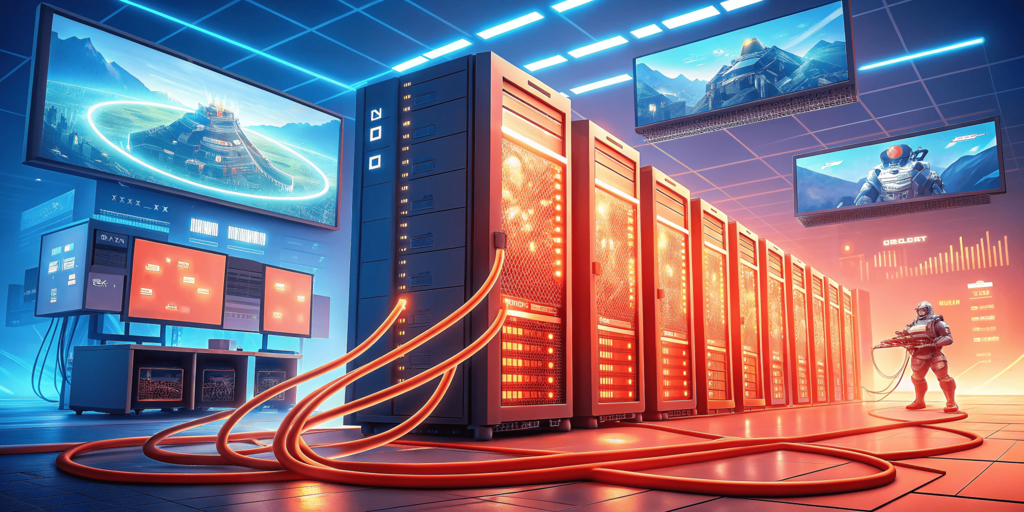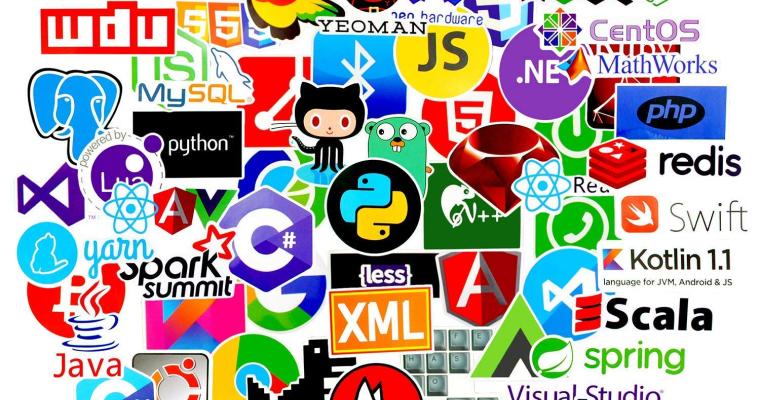Every successful online casino needs strong server technology behind it. Whether you’re running exciting slot games or streaming live dealer tables, your servers directly affect how happy your players are and how much money you make. This guide will help you understand everything about iGaming servers, from slot machine hosting to live casino streaming.
What Are Remote Gaming Servers?

A Remote Gaming Server (RGS) is basically the brain of your online casino. It stores all your games and delivers them to players over the internet. Think of it as a powerful computer that runs your slots, table games, and card games 24/7. This server handles everything from creating random results to tracking player bets and making sure every game is fair. The best part? One RGS can work with games from many different providers, making it easy to offer hundreds or thousands of games to your players. Modern systems can handle thousands of players at once without slowing down.
Popular providers like IGT casinos, Microgaming, Blueprint Gaming, and Thunderkick all integrate through RGS systems. Modern systems can handle thousands of players at once without slowing down. If you’re interested in building casino platforms, professional casino game development services can help integrate these server solutions.
What Gaming Servers Do
Gaming servers are busy machines. They check who’s logging in, process bets, create random game results, and keep detailed records for regulators. The server watches every move to prevent cheating and fraud. When lots of players are online at once, the system spreads them across multiple servers so everyone gets a smooth experience. Smart caching systems help games load faster, and backup systems keep everything running even if something breaks. Most gaming authorities require at least 99.95% uptime, which means less than 5 hours of downtime per year.
Slot Games Server Technology
Online slots are the most popular games in any casino, and they need special servers to work properly. These servers connect to gaming machines through secure networks and manage everything behind the scenes. They run the math that decides if you win or lose, when bonus games trigger, and how progressive jackpots grow. Understanding how online slots work with RNG technology is crucial for slot games server igaming setup. A good slot server can handle hundreds of spins every second across thousands of different games while keeping the payout percentages exactly where they should be.
What Slot Servers Need
Slot servers need serious computing power. They process game animations, sounds, and math calculations all at the same time. The more players you have, the more memory you need because each player’s game session uses resources. Storage space is crucial too—you need to keep records of every single spin for years in case regulators want to check them. Your internet connection must be fast enough to deliver high-quality graphics, especially for modern 3D slots and cascading slots that look like movies. Security systems protect against hackers, while certified Random Number Generators make sure games stay fair. Databases track everything from player achievements to bonus rounds that carry over between sessions.
| Server Component | Basic Setup | Professional Setup | What It Does |
|---|---|---|---|
| CPU | 16-core processor | 32-core or dual processors | Runs game logic and random number generation |
| RAM | 64GB memory | 128GB+ memory | Manages active player sessions |
| Storage | 2TB SSD drives | 4TB+ fast SSD drives | Stores games and keeps transaction records |
| Internet | 1Gbps connection | 10Gbps redundant connections | Connects players to games |
| Uptime | 99.9% online | 99.99% with backup systems | Keeps casino running non-stop |
How Online Slots Remote Servers Work
Remote slot servers use smart systems to work efficiently. Content Delivery Networks (CDN) save copies of your games around the world, so players get faster loading times no matter where they are. The main game servers run in licensed data centers that meet gambling regulations. Your player data gets copied to multiple locations for safety in case of emergencies. Communication systems connect your casino platform to the game servers, handling logins, sessions, and payments. Monitoring tools watch online slots remote server health constantly and catch problems before players notice them. This setup lets you quickly add more servers during big promotions when traffic spikes.
Live Casino Server Infrastructure

Live dealer games need completely different servers than regular slots. Instead of computer-generated results, you’re streaming real dealers from studios to players’ screens. The technology combines professional video streaming with real-time betting systems to create an experience that feels like a real casino. Your live casino server must handle video encoding, internet distribution, player interactions, and betting—all at the same time for potentially thousands of players watching the same table.
What Live Dealer Games Hosting Needs
Hosting live casino games takes serious technology. In 2025, players expect perfect streaming, almost no delay, and interactive features powered by new tech like AI and VR. Your video servers need to create multiple quality levels so the stream adjusts to each player’s internet speed automatically. Delay is critical—anything longer than 2-3 seconds frustrates players and makes life hard for dealers managing betting rounds. Backup streaming paths automatically switch if the main connection fails. Placing streaming servers around the world closer to your players reduces delays and improves quality.
What You Need for Live Casino:
- Video Encoding Servers: Convert camera feeds into different quality streams (from standard to 4K) in real-time
- Streaming Networks: Deliver video to players worldwide through servers located near them
- Game Control Systems: Manage betting windows, verify results, and calculate payouts synchronized with dealer actions
- Optical Character Recognition (OCR): Automatically reads cards and roulette numbers, instantly feeding results to the system
- Graphics Overlay Systems: Add betting buttons, stats, and game history on top of the video without interrupting the stream
- Chat Systems: Let players talk to dealers and each other through text chat (sometimes voice too)
- Platform Connections: Link live games with your casino platform for balance updates and bonuses
Table Games Remote Server Setup
Table games like blackjack, roulette, and baccarat use special servers that understand complex rules and betting options. These servers track multiple players betting on the same table, handling main bets, side bets, and insurance all at once. The system checks betting limits, applies specific table rules, and pays out winnings based on results. Dozens of players can join one game, with servers managing each person’s balance and bet history separately. Progressive betting systems track patterns and series, while tournament modes support competitive play with rankings and prizes.
Slot Servers vs Live Casino Servers: What’s Different?
Understanding how slot machine server gambling and live casino servers differ helps you make smarter technology choices. Here’s a clear comparison:
| Feature | Slot Games Server | Live Casino Server | Why It Matters |
|---|---|---|---|
| Main Job | Generate random results | Stream video and manage live games | Determines what technology you need |
| Speed Requirements | 100-500ms delay is fine | Must be under 2 seconds | Affects player experience quality |
| Internet Needed | 1-5 Mbps per player | 3-8 Mbps per player | Changes your hosting costs |
| Growth Potential | Easy to add more servers | Limited by studio and dealer capacity | Affects how fast you can grow |
| Running Costs | Lower ongoing costs | Higher with dealers and studios | Impacts your profit margins |
| Certifications | Random generator and game testing | Studio licensing and dealer training | Different compliance requirements |
| Handling Traffic Spikes | Automatically add servers | Need to plan table capacity ahead | How you manage busy periods |
Building Your Gambling Server Infrastructure
Building solid gambling servers takes careful planning. You need to put physical servers in locations approved by gambling regulators, which also helps reduce delays for your target players. Backup power systems with batteries and generators prevent you from losing money during power outages. Air conditioning keeps equipment cool and working properly. Your internet setup should have connections from multiple providers so if one fails, you stay online. Firewalls and security systems protect against attacks, while DDoS protection stops malicious traffic before it reaches your games.
Server Hardware You’ll Need
Modern gambling servers use professional equipment designed to run 24/7. Processors need lots of cores and speed since games benefit from both. Special error-correcting memory prevents data corruption that could mess up game results. RAID storage gives you both speed and protection—RAID 10 is the sweet spot. Network cards supporting 10Gbps or faster with backup connections prevent internet from becoming a bottleneck. Hot-swap parts let you replace broken components without shutting down. Monitoring sensors track temperature and fan speeds, warning you about problems before equipment fails.
Hardware Recommendations for Busy Casinos:
- Dual-processor systems with 64+ total cores for handling peak player traffic efficiently
- 256GB+ error-correcting memory so you can support thousands of players at once
- Fast SSD drive arrays in RAID 10 setup for quick data access and redundancy
- Redundant 10Gbps internet ensuring network speed never slows down your games
- Hardware encryption chips to handle security without slowing down main processors
- Remote management tools letting you fix problems without being physically present
- Professional power supplies with backup units preventing power-related failures
Software That Runs Everything
Software turns your hardware into a working casino. Most operators choose Linux (Ubuntu Server, CentOS, Red Hat) for stability and speed, though Windows Server works for some setups. Virtualization lets you run multiple virtual servers on one physical machine, using resources efficiently. Container systems like Kubernetes manage modern applications, making updates and scaling easier. Databases store player info, game records, and audit logs—PostgreSQL and MySQL work for most needs, while Redis provides super-fast caching. Web servers handle requests and deliver games. Application servers run game logic written in fast programming languages like Java, C++, Go, and Node.js.
Keeping Gaming Servers Secure
Security isn’t optional in gambling—it protects you, your players, and keeps you legal. Encryption secures all data moving between servers and players using modern TLS protocols, preventing anyone from intercepting sensitive information. Modern payment methods like Boku casinos require secure integration with your server infrastructure. Stored player data gets encrypted too, protecting it from unauthorized access. Multi-factor authentication secures admin access to your systems. Regular security checks find weak spots before hackers do. Penetration testing simulates real attacks to validate your defenses work. Intrusion detection watches network traffic for suspicious activity. Security monitoring systems collect logs from everything, helping you spot threats quickly. Regular backups ensure you can recover data after problems, with backup copies stored in different locations protecting against disasters.
| Security Layer | How It Works | What It Protects Against | Required By |
|---|---|---|---|
| Network Protection | Firewalls, VPN, DDoS defense | Hackers, unauthorized access | All gambling licenses |
| Data Encryption | TLS 1.3, AES-256 for storage | Data theft, interception | GDPR, payment card rules |
| Access Control | Role-based permissions, 2FA, logs | Insider threats, unauthorized changes | SOC 2, ISO 27001 standards |
| Game Fairness | Certified random generators, tamper alerts | Cheating, manipulation | Gaming license requirements |
| 24/7 Monitoring | Security operations center, alerts | Quick response to threats | Industry best practice |
Where to Put Your Servers: Location and Licensing
Where you physically place your servers matters a lot for licensing. Many countries require servers located within their borders or in specific approved places. Malta, Gibraltar, Isle of Man, and Curaçao are popular licensing locations with clear technical rules. Regional markets like Australian online pokies have specific server and licensing requirements. European casinos typically need servers in EU territories for data protection compliance.
US operators face complex state-by-state rules about server location. Asian markets have different regulations in each country. Server location also affects speed for players—putting servers near your audience improves their experience. Sometimes licensing rules and player location conflict, so you need distributed systems with game logic in licensed areas and content delivery through worldwide networks.
Testing and Certification Requirements
Gaming servers must pass strict testing before you can use them commercially. Independent testing labs like GLI, eCOGRA, iTech Labs, and BMM evaluate your random number generators, game math, and security. Certification checks that your random generators truly produce unpredictable results by analyzing millions of game outcomes. Game testing ensures rules work correctly and payout percentages match what you advertise. Security evaluations test whether hackers can break in, checking encryption strength and data protection. Performance testing makes sure systems work properly under maximum load. Documentation reviews verify you keep complete audit trails and store data as required. You need recertification after any changes to game logic.
Making Servers Run Faster
Faster servers mean happier players and lower costs. Database optimization reduces wait times—proper indexing, caching, and connection management prevent database slowdowns. Content Delivery Networks cache game files globally, reducing server load and speeding up loading for distant players. Server caching stores frequently needed data in fast memory instead of repeatedly hitting databases. Load balancing spreads traffic across multiple servers so none get overwhelmed. Horizontal scaling adds more servers when needed, while vertical scaling upgrades existing ones. Code optimization finds and fixes performance problems. Asynchronous processing handles background tasks separately from real-time gaming, preventing delays.
What to Monitor for Performance:
- Response Time: Track average and worst-case speeds to ensure games feel responsive
- Throughput: Monitor how many requests you handle per second to identify capacity limits
- Error Rates: Count failed requests to spot problems before they affect many players
- Resource Usage: Watch CPU, memory, disk, and network to find bottlenecks
- Active Players: Track simultaneous sessions to understand capacity needs
- Database Speed: Monitor query times and identify slow queries for optimization
How Much Does It Cost?
Infrastructure represents a major expense. Initial hardware costs range from $50,000 for basic setups to over $500,000 for enterprise systems handling heavy traffic. Data center space costs $1,000-$5,000 monthly per rack, depending on location. Cloud hosting (AWS, Google Cloud, Azure) offers flexibility but potentially higher long-term costs—expect $3,000-$20,000 monthly for medium operations. Internet bandwidth scales with player count and game types, with live casino using much more than slots. Software licenses for operating systems, databases, and tools add ongoing expenses. Staff costs for system administrators, engineers, and security specialists often exceed hardware costs. Testing and certification cost $20,000-$100,000 per game or platform component.
Future of Gaming Server Technology
Gambling server technology keeps evolving. Edge computing puts processing closer to players, reducing delays for live casino. Artificial intelligence optimizes resource use, predicts maintenance needs, and improves security. Blockchain enables provably fair gaming with transparent, verifiable results. 5G networks reduce mobile delays, improving mobile casino experiences. Virtual reality needs new server architectures handling 3D streaming. Serverless systems reduce complexity for certain tasks. Quantum-resistant encryption prepares for future security challenges as quantum computers threaten current encryption.
How to Choose Your Server Solution
Picking the right servers requires evaluating several factors. Your business size determines scale needs—startups may succeed with cloud infrastructure, while established casinos benefit from dedicated hardware. Target markets influence where you put servers and which regulations apply. Your game mix affects infrastructure design—slots need different specs than live casino. Budget balances ideal setups against financial reality. Your team’s technical skills determine whether managed services or self-hosting works better. Growth plans inform scalability needs, ensuring infrastructure supports future expansion without complete rebuilds. Vendor reputation and support quality impact long-term success.
How to Decide on Servers:
- Calculate current and future player numbers to size infrastructure without overspending on unused capacity
- Identify target markets and licenses to determine where servers must be located and compliance costs
- Review game types and providers to understand technical requirements and bandwidth needs
- Figure total ownership costs including hardware, hosting, maintenance, staff, and licensing over 3-5 years
- Check vendor certifications to ensure providers meet gambling industry standards and regulations
- Test performance realistically before committing, validating they meet speed and capacity requirements
- Plan for growth ensuring chosen infrastructure supports business expansion without major redesigns
What Is Next?
Strong server infrastructure is the foundation of successful online casinos. Whether you’re running slot games through random number servers or streaming live dealer experiences, technical quality directly affects player satisfaction and profits. Understanding the different needs of slot machine servers versus live casino infrastructure helps you make smart technology decisions that match your business goals. Beyond traditional casino infrastructure, operators might also explore lottery platform development for diversifying their gaming offerings. The complexity of modern gambling servers requires careful planning, but delivering great player experiences makes these investments worthwhile.






